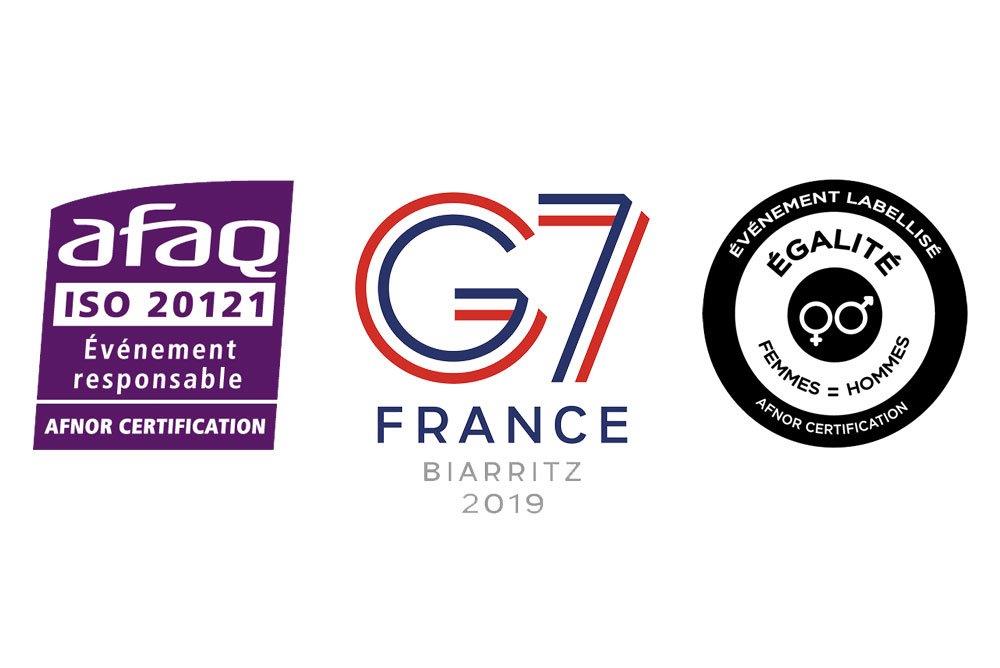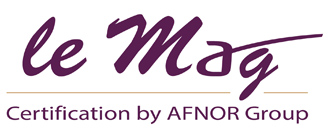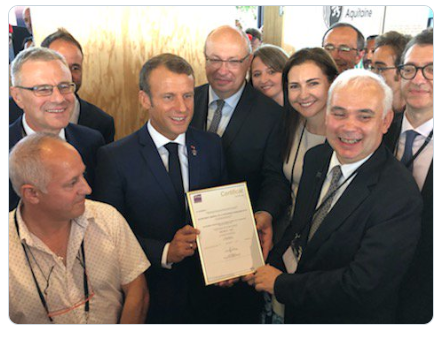The G7 summit, which wrapped up in Biarritz on 26 August 2019, delivers on its promise as the hosting team sought to limit its environmental impact and to promote gender equality. And it was recognized for its actions… twice.
Like companies, public-sector actors cannot disregard the social and environmental stakes of their work. What they do must align with how they do it. To improve consistency, and therefore strengthen trust, many standards and guidelines are available to them, which describe the best practices and how to continuously improve in a given area. These actors may then obtain certification from an independent third-party organization to demonstrate that they are strictly applying these guidelines.
That was what France did this year at the helm of the 2019 G7 presidency. The organizers sought to show that the Biarritz summit, the “final phase” of this gathering of the seven major world powers, as well as the ministerial meetings leading up to it, complied with two commitments: to plan and host an environmentally responsible event consistent with the principles of sustainable development, and to ensure that gender equality was addressed. This reflects the agenda of the summit itself: the fight against inequality, defined broadly as social, economic and environmental inequality.
ISO 20121: Event Sustainability
To demonstrate that it was committed to both objectives, the Macron administration partnered with AFNOR Certification, France’s leading certification body. From 29 March to 24 August 2019, the opening day of the G7 summit in Biarritz, AFNOR Certification conducted third-party audits. These on-site visits made it possible to certify that the summit hosts – the G7 General Secretariat and the ministries involved – mobilized all necessary resources to efficiently apply and share the best practices set out in two standards: ISO 20121 and the specifications of the “Equality at a Major Event” label. On 24 August 2019, French President Emmanuel Macron thus received from AFNOR Certification the ISO 20121 certificate and the “Equality at a Major Event” label, both of which covered the 48-hour duration of the Biarritz summit. Launched in 2012 for the London Olympics, ISO 20121 certification is issued to event organizers who wish to demonstrate, following an audit, that they comply with strict standards aimed at limiting the environmental, social and economic impacts of an event. In the case of the G7, six events were audited: five preparatory meetings of G7 ministers and the G7 summit itself. The G7 in Biarritz was the first G7 summit certified on the basis of the ISO 20121 standard. On the government website, the Macron administration highlighted several environmental initiatives undertaken with private partners for the summit: to manage waste properly, offset carbon emissions, and reduce the impact related to transportation and energy use.
Launched in 2012 for the London Olympics, ISO 20121 certification is issued to event organizers who wish to demonstrate, following an audit, that they comply with strict standards aimed at limiting the environmental, social and economic impacts of an event. In the case of the G7, six events were audited: five preparatory meetings of G7 ministers and the G7 summit itself. The G7 in Biarritz was the first G7 summit certified on the basis of the ISO 20121 standard. On the government website, the Macron administration highlighted several environmental initiatives undertaken with private partners for the summit: to manage waste properly, offset carbon emissions, and reduce the impact related to transportation and energy use.
A customized label for gender equality
Gender equality was another key issue at the forefront of the discussions among the heads of state and government, which was also addressed in the event planning. A label was created specifically for the G7 meetings certifying that a number of best practices were applied and that the right questions were addressed (reception staff uniforms, countering host/hostess stereotypes, etc.). The ‘Equality at a Major Event’ label involved audits conducted during approximately ten preparatory ministerial meetings as well as during the G7 summit itself. It also represents a completely new approach for planning high-level meetings which should therefore be developed further.
> Find out more about ISO 20121 Certification
> Find out more about the ‘Equality at a Major Event ‘label (in French)





